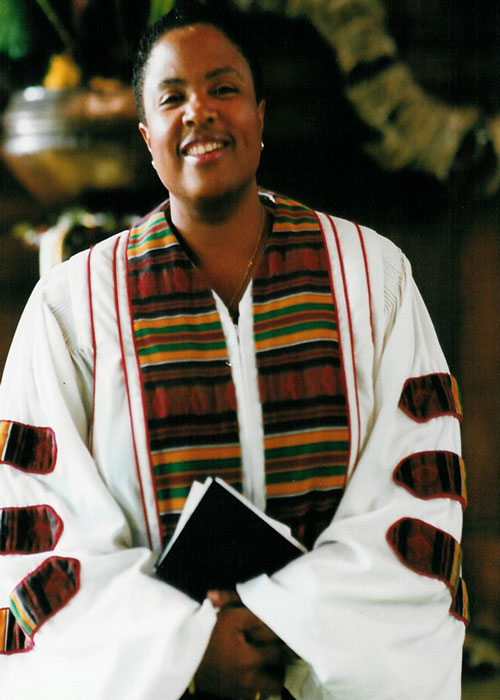 Reverend
Yvette A. Flunder
Reverend
Yvette A. FlunderFounder & Senior Pastor
City of Refuge
Community Church
FemmeNoir
A Web Portal For Lesbians Of Color
 Reverend
Yvette A. Flunder
Reverend
Yvette A. FlunderReverend Yvette A. Flunder was born in San
Francisco, to a family who were pioneers in the Church of God in
Christ. At 13, she attended Saints Academy in Lexington,
Mississippi and started her first ministry by organizing the
Campus Ministry. A graduate of Armstrong College, Reverend
Flunder became a foster parent in her early 20's and later
established a group home for high risk teens.
In 1979, Reverend Flunder began her work with the elderly
population and moved into providing direct services by
developing a variety of social services for the elderly in
residential housing. Her work in this arena received many
awards, including the Award of Excellence and the Mayor's Award
from the City and County of San Francisco.
In response to the epidemic of HIV/AIDS, Rev. Flunder, along
with other members of Love Center Ministries, established An Ark
of Love, Inc. which opened The Ark House, a communal living
facility, the first of its kind to be run by an African-American
church in Northern California.
Moving to San Francisco in 1991, Reverend Flunder founded the
City of Refuge Community Church in order to unite a gospel
ministry with a social ministry. Preaching a message of action,
the church has experienced a steady numerical and spiritual
growth in its new building at 1025 Howard Street from 50 at its
first service to over 600 member in four years. On April 30,
1995, City of Refuge Community Church made a covenant with the
Protestant denomination United Church of Christ.
Responding once again to the needs faced by the HIV infected
clients, Reverend Flunder and her staff opened the Hazard-Ashley
House in Oakland and the Restoration House in San Francisco
through the Ark of Refuge, Inc., an HIV specific non-profit
agency whose purpose is to provide housing, direct services,
education and training for persons affected by HIV/AIDS in the
Bay Area. Restoration House is a dual-diagnosis residential
facility for African-American women and the first of its kind in
San Francisco.
Reverend Flunder has received numerous awards for her work in
the HIV/AIDS field including:
Presently, Reverend Flunder serves as:
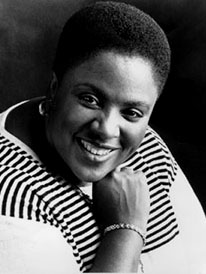 WHO
IS THIS PREACHER?
WHO
IS THIS PREACHER?
REV. DR. YVETTE FLUNDER
My voice is rooted in the African American
Southern Pentecostal Church where passion for God in Jesus is
heard and seen in the songs, preaching, dancing and daily
at-home meditations. I have struggled with the church and the
Bible, but not with the freestyle celebratory worship of the
Pentecostal Church. My struggle has been with the Christian
Church’s position regarding the treatment of women, homosexuals,
war, people of color and slaves (My grandmother, Bessie Hamilton
born 1895, was the daughter of Stella Wyatt who was born a
slave). I am an avowed womanist, and a reconciling liberation
theologian who dances in the Spirit and speaks in tongues.
Holding on to Jesus in spite of the church and the tortured
interpretations of scripture used to mortally wound my faith,
has been a life long journey. Finding my way, following the
Light, refusing to believe Jesus didn’t love me; this is the
foundation of my preaching. I am a desperate preacher who knows
personally how theologies are fluid and new ones are born at
friction points.
Mine is a voice that passionately preaches justice and freedom
with responsibility; however not to the exclusion of Jesus.
Justice without Jesus will not work for me.
I preach to a desparate people, who are struggling to make sense
of their lives on the margins of society. They are my beloved.
In my community, you must find God in the struggle for equality,
parity and justice; the struggle is the long, strong, deep,
resonant base of all we preach, sing and pray about. 'Through
many dangers toils and snares’...is foundational to our worship,
and the locus of our passion. If we cannot see God in the
struggle and believe day after day that God will make it all
right, then we cannot see God at all. This is the starting
point.
I preach faith based sermons to build self-worth and self-value
in the lives of people who have often been stripped of all that
is right and good. I strive to see peace and a sense of security
present in the lives of those I pastor, preach to and serve.
Emil Thomas said that, “our slave ancestors had a basis for
calm: a special inner peace born of a profound conviction that
their self worth had been well established already and was
guaranteed by the Ruler of the universe”. This is a peace born
from the assurance that God will come through for us; God is on
our side. This is what I believe; this is what I preach.
PREACHING INFLUENCES
I identify with Craddock in his book Preaching because his
approach to preaching/ teaching is very Bible, Jesus and God
centered. I’ve seen the methods he recommends for sermon
structure used both in the United Church of Christ and in the
churches of my youth; however what flows out of his center is
scripture based preaching with other sources used to support the
scripture. While I am not in total agreement with the extent to
which Craddock lifts up the authority of the Bible, I do
appreciate and believe strongly in scripture based, Christ
centered preaching for liberation. This kind of preaching
requires much study with an eye to taking Jesus back from the
fundamentalists, but it is the most effective kind of preaching
for my community. I, like David Buttrick would argue “for a
church animated by the Gospel, rather than a church heavily
under the rule of an imposed scriptural authority” , but people
who have for generations been abused by the preaching of the
Bible need to hear the Bible preached in ways that affirm and
validate them.
Craddock lifts up the need to study, to listen in silence and
reflect, and to attend to structure, form and delivery. He also
asserts that preaching is both learned and given; the learning
is the ‘how to’ method in his book, the given is the content or
core of our preaching...the Word of God. The words come from us,
the Word comes from God. I agree that when our words are
empowered by the Holy Spirit, positive change takes place, both
in the preacher and the listener.
According to Craddock, the preacher must also have good moral
character , as preaching is not just another vocation; it
assumes to give to the listener revelation from God and as such
carries great responsibility. The position of preacher is a
lofty one in my community, with equally lofty expectations.
There is a need, says Craddock, for the preacher to be sensitive
to the needs of the listener i.e. sermons should speak for as
well as to the congregation, the Gospel is from the community as
well as to it. He expresses the need for honesty and intimacy,
and the importance of preaching about things that are familiar
to the listener. Preaching in my tradition uses life experience,
or what I call ‘personal transparency’ to identify with the
experiences of the listener.
Craddock says preaching should include something people can
recognize, even in the introduction of new truths…”A
rearrangement of the familiar can make it as interesting as the
new yet satisfying as the old…present the familiar with interest
and enthusiasm”. Craddock also talks about identification or
being genuine and not exaggerated or artificial in presence or
preaching. He seems to be encouraging the preacher not to simply
be profound but to seek to be a profound blessing, by hearing
from God and paying close attention to ‘voice’ of the listening
congregation. I believe that in order to genuinely be a blessing
to the congregation the preacher must seek to know and
understand who she/he is preaching to. Lenora Tubbs Tisdale in
Preaching as Local Theology and Folk Art calls this ‘Exegeting
the Congregation’. Tisdale says, If we as preachers are going to
proclaim the Gospel in ways capable of transforming
congregational identity, we first need to become better
acquainted with the ways our people already imagine God and the
world. If we are going to aid in the extension of myopic vision
or the correction of astigmatic values then we must first strive
to ‘see’ God and the world as our people do.
It is through this synergistic relationship that the preacher
and the congregation become one organism, worshiping God
together. The preaching and the response are then filled with
faith, passion and power. This is preaching, as I understand it.
My preaching is greatly influenced by my grandfather, my father,
my uncles, my mother and my grandmother all of whom are/were
preachers. I spent my youth as a pastor’s kid in the Church of
God in Christ, a predominately Black Pentecostal denomination.
My style of preaching echoes the preachers who surrounded me,
both in my family and throughout the organization. Most of the
preachers I knew were blue-collar folk who came to their role as
preacher and or pastor without the benefit of formal training.
There were not many African Americans in college, and if they
were in school they were seeking a way to make themselves more
eligible for jobs. The call to preach was not often planned as a
vocation. It sort of ran up behind you and tackled you while you
were trying to get ahead in life. Authorization for ministry
came from the Church at such time as it was determined one was
ready. “Ready” meant having demonstrated faithfulness and an
ability to preach. The Church of God in Christ believed that no
matter how educated or filled with deep knowledge a person was
that knowledge had to be evidenced by good preaching for a
preacher to gain affirmation from the Church. Good preaching
meant good performance that included choosing a good text, a
good reading of the text, good entertainment,
believability/authority, identification, food for thought,
power, humor, passion and a super celebration. I know that
Craddock’s statement; “Listeners tend to lean into narratives
which have emotional force, but which are presented with
emotional restraint“ is an indication that we come from
different cultures. Emotional restraint was not exercised
particularly at the close or celebration time in the sermon. I
tend to agree with Frank A. Thomas, regarding celebration and
emotion. Thomas writes, “It is precisely because so much of
Western preaching has ignored emotional context and process, and
focused on cerebral process and words, that homileticians most
recently have struggled for new methods to effectively
communicate the Gospel” . The preaching was central to the
worship experience; it was the highlight. All things lead up to
it and out from it. It was a Word from the Lord.
I am fascinated when I read books like Speaking from the Heart
which detail the method often present in black Pentecostal
preaching and lift up that method as an example of how good
preaching is accomplished. I find myself often wishing that my
Grandpa Eugene (Bishop Eugene E. Hamilton) and my Uncle Rudolph
(Bishop S. Rudolph Martin) could have lived long enough for me
to share with them the fact that a science is being taught that
captures what they did among us for many years. They did not
adhere to any particular preaching calendar or use many sermon
helps written by others but the power of their sermons lives on.
Of particular interest, is the ‘science’ and skill I now
recognized in the preaching I grew up around; I know most of
those folk did not realize what masters they were in the art of
using illustrations, simile, or hyperbole, but all these thing
were part of their preaching process.
Storytelling, speaking in hieroglyphics and word pictures were
methods employed to leave a lasting impression on the hearer.
You could see it, taste it and feel it while they preached. My
Grandpa lived his sermons so his ethos and personal conviction
came through with the great passion, energy, and emotion.
The Pentecostal preaching influence is one where the language is
ordered, the lines are metrical and poetic and the sermon is
‘sung’, in places with the help of the congregation and the
musicians. This form of performance art entertained the
congregation while driving home the truths in the sermon.
Engaging the audience in a call and response to both the meter
and the message encouraged the congregation to not only
participate but it signaled that the sermon was successful.
Preaching as performance art was and is an essential part of the
African American Pentecostal worship experience.
PREACHING ON THE EDGE
As to the content of my sermons, I often preach sermons to
raise the consciousness of those who feel they have exclusive
rights to Jesus and to empower oppressed people to take their
place at God’s ‘welcome table’. I preach to build faith and to
demystify success for oppressed people. I do not consider my
preaching adversarial or divisive. As I mentioned earlier I call
myself a ‘reconciling, liberation theologian’, and my desire is
to see harmony in the Body of Christ.
Empowerment and liberation are consistent themes in my
preaching. Marginalized people often ask, “Is God for us?”
Incarnational liberating preaching is vital in these
communities, as preaching has often been used to push oppressed
people more and more to the margin. The preaching in the
community evidences the extent to which the community is
welcoming. After a natural disaster, people come to church in
record numbers asking, “Is God for us?” and then they listen for
the assurance from the pulpit. In marginalized communities
crises is a way if life and incarnational preaching is
essential.
Preaching to people who are on the edge of society and the
mainline church must have good content and good form. Preaching
to marginalized people must be believable, powerful and
passionate. Marginalized people frequently have a memory of
strong words from the pulpit used to destroy. They need stronger
words of affirmation and inclusion. In my sermons I attempt to
carry a message that counters the teaching of those who support
a theology that calls anyone unclean or claims to have exclusive
‘truth’.
TOWARD A TRANSFORMING MOMENT
I believe there must be a relationship between loving and
knowing God, the text and the people the text is shared with.
When the interpreter of the text begins by incorporating
integrity, relatedness and faithfulness to a relationship with
God and to the text there will be a more honest relationship to
the congregation/listeners. Additionally preachers must be
secure in their relationship with God and witnesses of the truth
of the Gospel. Oppressed people seem to be particularly aware
when there is disparity between what the preacher says and what
she/he really believes. Ward asserts, “If you do not have a
secure sense of self and conviction about your right to address
your people, then it will be nearly impossible to engage them.”
Marginalized people are people that need to hear from God. How
can they hear without a preacher? And the preacher must love
God, love the text and identify with the people in order to be
authentic.
When these things come together I believe we achieve what
Bozarth calls the moment of ‘transformation’. I seek for this
moment in my preaching. I have no greater joy than to embody a
liberating truth and to participate in the circle dance as the
Holy Spirit brings life to me and to those that hear and receive
the Word. God in Christ through the Holy Spirit empowering the
preacher and the congregation through the embodied Word …The
circle is complete, and the kingdom is revealed. It is a glimpse
of heaven.
PART II
Mitchell, Henry H. and Thomas, Emil M. 1994. Preaching
for Black Self-Esteem. Nashville: Abingdon Press, 133
Craddock, Fred B. 1985. Preaching. Nashville: Abingdon
Press, 27
Buttrick, David. 1994. A Captive Voice: The Liberation of
Preaching. Louisville: John Knox Press, 30
Ibid., 23
Ibid., 26
Ibid., 160
Ibid., 165
Tisdale, Lenora Tubbs. 1997. Preaching as Local Theology and
Folk Art. Minneapolis: Fortress Press, 57
Craddock, p.164
Thomas, Frank A. 1997. They Like To Never Quit Praising God:
The role of Celebration in Preaching. Cleveland: United
Church Press, 5
Ward, Richard. 1992. Speaking From the Heart: Preaching with
Passion. Nashville: Abingdon Press, 48-49
Bozarth, Alla Renee. 1997. The Word’s Body: An Incarnational
Aesthetic of Interpretation. Lanham,MD: University Press Of
America, 116
Source: http://www.sfrefuge.org/

|
City of Refuge
1025 Howard Street San Francisco, CA 94103 (415) 861-6130 fax: (415) 861-6103 Email: |
The Ark of
Refuge 1025 Howard Street San Francisco, CA 94103 (415) 861-6130 fax: (415) 861-6103 Email: |

This site contains HIV prevention messages that
may not be appropriate for all audiences. Since HIV infections
spread primarily through sexual practices or by sharing needles,
prevention messages and programs may address these topics. If
you are not seeking such information or may be offended by such
materials, please do not visit this website.
KQED Interview
![]()
Reverend
Yvette A. Flunder
City of Refuge Ministries
[Note: If movie does not appear above, click link below to
view]
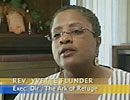
View Quicktime Movie
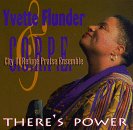
There's Power
Click to hear
selections

The Abingdon Women's Preaching Annual: Series 1, Year C
(Abingdon Women's Preaching Annual)
by Leonora Tubbs Tisdale (Editor)

Birthing the Sermon: Women Preachers on the Creative Process
by Jana Childers (Editor)
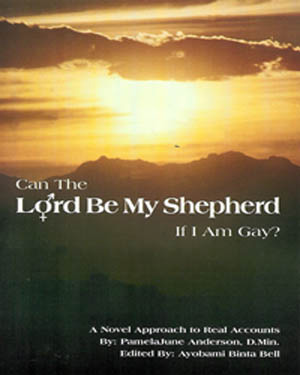
Can the Lord Be My Shepherd If I Am Gay?
Anderson, D. Min. , Pamelajune
Home